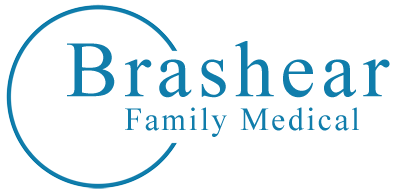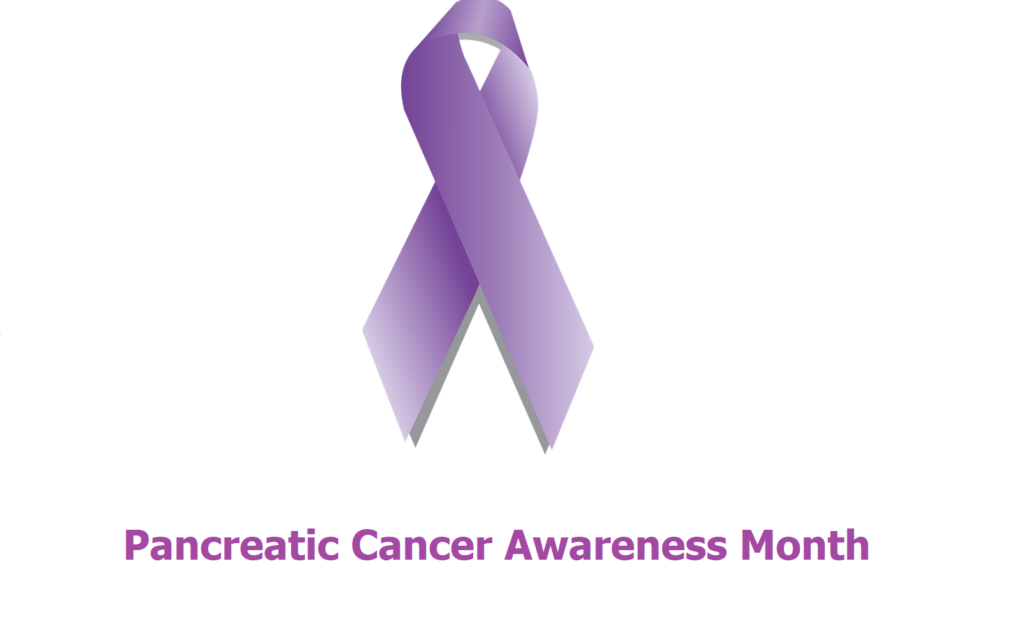November marks Pancreatic Cancer Awareness Month. This is a time where people across the world come together to fight back against, and raise the profile of, pancreatic cancer. Therefore, we will discuss pancreatic cancer and how you can help to raise awareness during this month.
Pancreatic Cancer Awareness Month
Types of Pancreatic Cancer
Exocrine Pancreatic Cancer
The exocrine pancreas makes up the majority of your pancreas. While there are several different types of exocrine pancreatic cancer, 95% of cases are due to pancreatic adenocarcinoma.
Other less common exocrine pancreatic cancers include the following:
- Adenosquamous carcinoma
- Squamous cell carcinoma
- Giant cell carcinoma
- Acinar cell carcinoma
- Small cell carcinoma
Endocrine Pancreatic Cancer
Other cells of the pancreas make hormones that release directly into your bloodstream (endocrine system). Pancreatic neuroendocrine tumors or islet cell tumors are cancerous tumors arising from these cells.
Endocrine pancreatic cancers are rare and depend on the type of hormone they produce. These include the following:
- Insulinomas (from an insulin-producing cell)
- Glucagonomas) from a glucagon-producing cell)
- Somatostatinomas (from a somatostatin-making cell)
- Gastrinomas (from a gastrin-producing cell)
- VIPomas (from a vasoactive intestinal peptide-making cell)
- Non-secreting islet tumors of the pancreas (pancreatic islet cell tumors that don’t secrete hormones)
Symptoms of Pancreatic Cancer
The pancreatic cancer symptoms can be very general and mimic other gastrointestinal conditions. Symptoms of pancreatic cancer may include the following:
- pain (usually abdominal or back pain)
- weight loss
- jaundice (yellowing of the skin and eyes)
- loss of appetite
- nausea
- changes in stool
- diabetes
Causes of Pancreatic Cancer
Pancreatic cancer occurs when cells in the pancreas grow, divide and spread uncontrollably. This forms a malignant tumor. The exact cause of pancreatic cancer is not known.
Cigarette smoking is the major risk factor for pancreatic cancer. Smoking roughly doubles your risk for pancreatic cancer when comparing to non-smokers. Diabetes is not a risk factor for pancreatic cancer, but the two have a connection. Other risk factors for pancreatic cancer include the following:
- age
- race
- family history
Treatment for Pancreatic Cancer
There are several treatment options for pancreatic cancer, including one or a combination of the following:
- surgery
- chemotherapy
- radiation therapy
- palliative care
Surgery is common to attempt to cure pancreatic cancer. However, you may also have surgery to lessen or prevent symptoms. Chemotherapy and radiation are often given together, prior to, after, or even without surgery, to slow the pancreatic cancer’s growth. The goal of palliative care is to reduce discomfort for people whose pancreatic cancer cannot be cured.
Prevention of Pancreatic Cancer
Unfortunately, there is no research that shows what you can do to prevent pnacreatic cancer. However, there are some things that could possibly reduce our risk, including:
- maintaining a healthy weight
- limiting alcohol usage
- quitting smoking
How to Raise Awareness During Pancreatic Cancer Awareness Month
The following are just a few ways you can raise awareness during this month:
- Pledge to never give up and make a donation.
- Share your story and inspire survivors and families.
- Wear purple to raise awareness.
These are just the basics of pancreatic cancer. For more information or to schedule an appointment with Brashear Family Medical, contact us with the link below!

